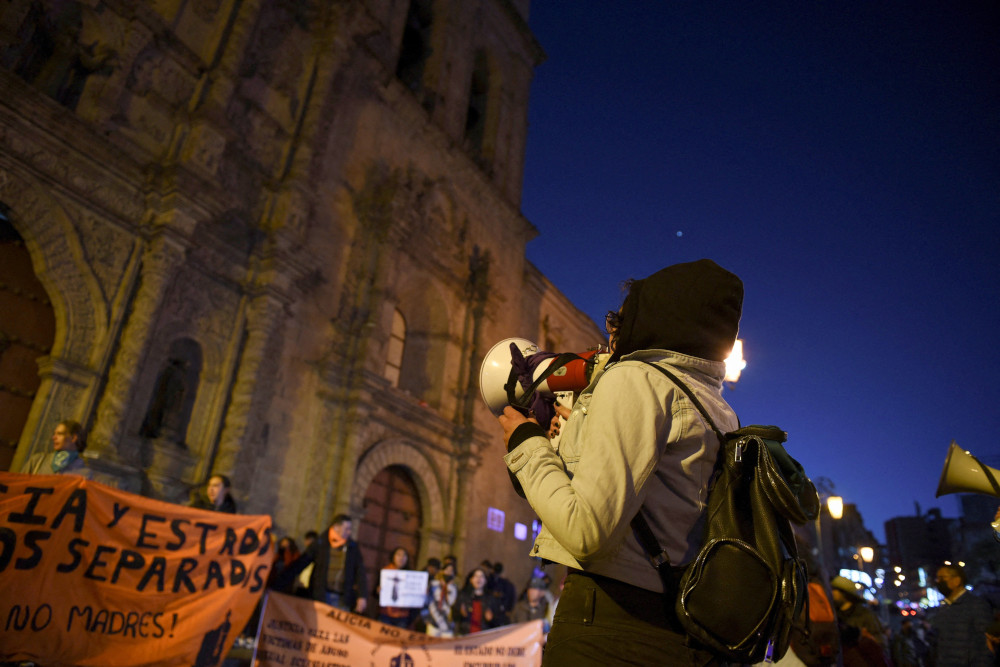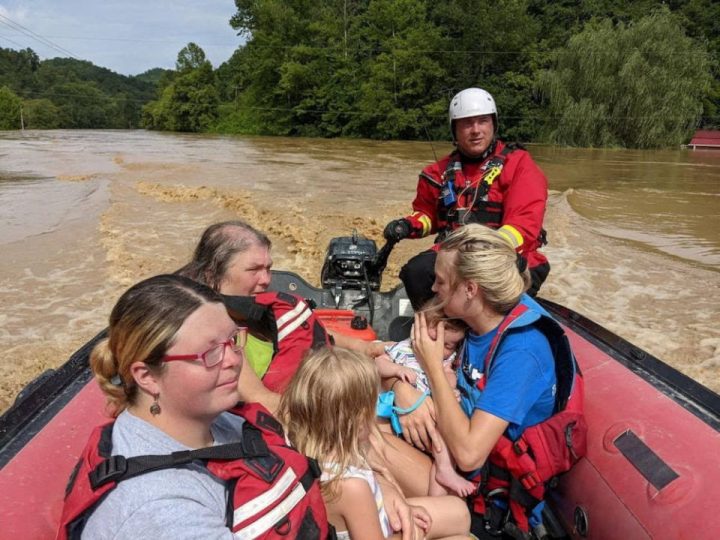
Revelations of rampant sexual abuse by deceased Jesuit Fr. Alfonso Pedrajas have prompted dozens of people in Bolivia to come forward with similar accusations of atrocities in the South American country, where the Catholic Church confronts a reckoning over the criminal acts of pedophile priests.
An investigation by Bolivian newspaper Página Siete found more than 170 victims of clerical sexual abuse being raised since early May, when the Spanish newspaper El País published its exposé into Pedrajas — a Spanish Jesuit who kept a record of his abuse of children by writing a diary.
« What El País has achieved has been the victims connecting with each other, interacting with each other, daring to speak out. Many of the victims are more than 50 years old, » Raphael Archondo, an academic and former director of Fides, a news outlet supported by Bolivia’s Jesuits, told OSV News.
« There’s a wave of complaints and it’s opened a lot of spaces for complaints to be filed, » he said.
The bishops’ conference has condemned the actions of pedophile priests, while acknowledging they failed victims, who « found a church deaf to their sufferings. »
The Jesuit province in Bolivia apologized and expressed « shame » and « regret » for what happened and promised to seek justice for the victims. The Jesuits have suspended eight former provincials who failed to act against Pedrajas.
The Society of Jesus (the Jesuits) opened a « listen and care » channel for receiving complaints in May — it allows for complaints to be received via email or WhatsApp messages — but said in a June 4 statement it had received only four accusations, one each against a pair of deceased Jesuits and two against a priest in the Diocese of Tarija.
The statement identified the Jesuits as Pedrajas — whose diary contained descriptions of sexual abuse over four decades of working in Bolivian and Latin American schools — along with Fr. Jorge Vila, who was accused of abusing a 13-year-old student at a Jesuit school in the early 1990s.
The Jesuits died in 2009 and 2012, respectively. Vila had become known in Bolivia for his defense of children’s rights, according to an obituary. He was a founder of Defensa de Niños y Niñas Internacional (DNI Bolivia — Defense of Children International).
The unidentified priest in the Diocese of Tarija was not a Jesuit, but the Jesuits said they have « supported the handling of two other cases of sexual abuse against a priest from the Diocese of Tarija, since for now it is the only channel of its kind that operates in the Bolivian church and cannot neglect the victims of persons from other ecclesial settings. »
The Diocese of Tarija has been among the dioceses hit with accusations of clerical sexual abuse.
Fr. Otto Strauss, 83, a German-born priest in the Diocese of Tarija, was scheduled to appear at a preliminary hearing in Tarija on June 6 — which was postponed due to the priest’s health — for a sexual abuse accusation dating back to 1988, according to local media.
Carmelite Fr. Milton Murillo, was ordered held in jail for three months on accusations of sexually abusing seminarians in Tarija and La Paz, Bolivian media reported May 18.
The Society of Jesus has recognized that four Spanish-born Jesuits have been accused of sexually abusing minors in Bolivia. They also include the late Archbishop Alejandro Mestre of La Paz, who died in 1988, and Fr. Luis María Roma Padrosa.
Roma is accused of abusing an unknown number of children between the ages of seven and 12 in Charagua, a town in eastern Bolivia. The Jesuits first learned of the accusations in 2019 from the Spanish news organization EFE, according to a May 14 statement.
He was suspended from ministry in 2019 at 84 — already suffering from dementia. The Jesuit curia delivered the results of its investigation into Roma to prosecutors May 9. The evidence included « alarming photographic material, » according to the statement.
Two elderly Jesuits, Frs. Carlos Villamil (called ‘Vico’) and Francesc Peris (called ‘Chesco’), who both worked with Pedrajas at the Juan XXIII Collegiate in Cochabamba during the 1980s, face accusations of sexual abuse from former students, according to El País.
The Jesuits said May 16 that they had not received any complaints against Villamil and Peris.
« It is true that other names have been mentioned recently in the press and it is likely that there will be a complaint, but the Society (of Jesus) does not know anything more about it regarding allegations of abuse, » Gabriel Chávez, a spokesperson for the Jesuit curia in Bolivia, told OSV News.
« The Society (of Jesus) is inviting victims to file complaints. Of course, if a new case is filed, the Society will notify the prosecutor’s office immediately. »
The publication of Pedrajas’ diary has caused outrage in Bolivia — with the government proposing strict child protection laws in response and calling for a revision of agreements between Bolivia and the Vatican.
Protests have erupted outside of churches, while the words « rapists » are spray painted on the outside walls.
Some of the Jesuits accused of abuse had become prominent in the country.
The Bolivian bishops’ conference has promised to establish a National Listening Commission and a national investigation to determine wrongdoing and improve transparency.
Meanwhile, the education arm of the Bolivian bishops’ conference, along with groups representing parents of Jesuit schoolchildren and Jesuit school alumni, issued a June 1 statement urging the government to respect the rights of families to choose Catholic education.
The statement said: « We ask that the freedom of choice of education that each family chooses be respected, let us remember that the country is governed by a democracy in which the form of educating constitutes a human freedom, generating human beings capable of living and coexisting together, guided by respect for others and avoiding confrontations and unnecessary damage. »



